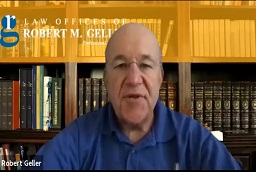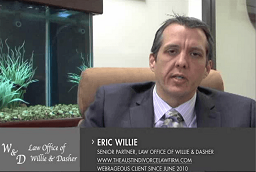Warning! Click fraud is worse than ever, and it’s taking a toll on PPC advertising. Losses from fraudulent clicks amount to about $60 billion per year, and the practice seems to be growing at over 50% year over year.
Click fraud has been around since PPC was invented. As more dollars shifted in from other mediums like television and print, the massive investments in pay-per-click made it lucrative enough for cybercriminals to want in on this windfall.

(Pixabay / launchpresso)
Then unethical businesses discovered an easy way to deplete their competitors’ budgets. They’d sabotage another company’s PPC campaign by funding individuals to click on their ads. Those in charge would generate thousands of clicks on ads without even knowing what they were about.
If you want to ensure your paid search budget is being well spent and your efforts are not being compromised, you need to learn how to prevent click fraud – in every way possible.
In this article, we’re going to look at what click fraud is, what are its common sources and what your business can do to prevent it.
What Is Click Fraud?
Click fraud is a form of ad fraud that falsely inflates the number of clicks on a PPC ad. By hiring people or deploying bots to commit click fraud, those with malicious intent aim to exhaust your daily budget before you’ve even had the opportunity to reach your target audience.
Click fraud may also distort the analytical data you rely on for keyword-related decisions. To give an example, let’s assume you have a profitable and high-converting keyword in one of your campaigns. If someone generates false clicks on that keyword and you fail to identify the fraud, you might decide to remove that keyword.

Need Google Ads Management Help?
Free Google Ads account review for
qualified clients
Almost 20 years experience
That’s because analytics show a low conversion rate for that keyword. Because most PPC systems charge for every click, the cost of ads will force you to get rid of it.
Common Sources of Click Fraud
There are four main sources of click fraud you need to be careful of:
1. Competitors
Market rivalry and search engine competition may cause one of your competitors to commit click fraud. For example, if you currently occupy the top rank in the SERPs, a competitor can sabotage your campaign by repeatedly clicking on your ads. They may also hire a team for the purpose so they can safeguard their own reputation.
2. Publishers
Because publishers get money for clicks on an ad, they may be interested in keeping the CTR (click-through rate) high. As a result, they may start mixing the real flow of clicks with simulated ones to siphon as much profit as possible.
3. Bots
Malicious actors may also use sophisticated systems that utilize web sessions and fake IP addresses, also regarded as bot farms. Bots will analyze the data stored in cookies (including past purchases, browser history, demographic information, and more) to determine which ads to target. Offenders can use bot farms to generate millions of fake views and clicks every single day.
4. Unhappy customers
Although rare, disgruntled customers may start clicking on your ads in order to take revenge for their negative experiences. Some may also do it out of boredom, whereas others could be hired to inflict damage on your campaigns.
Click Fraud Red Flags: How to Detect Fraudulent Clicks in Paid Search
There are lots of ways to determine whether your paid search Campaign has been targeted by malicious actors.
For example, an unusual spike in the amount of ad impressions or clicks without any conversions is a tell-tale sign of click fraud.
Plus, watch out for clicks with a high bounce rate because fraudsters may attempt to escape detection by arriving and staying on your client’s site for just a few seconds.
Clicks coming from the IP addresses of a particular country may signal another red flag. It could be that adversaries in a particular country have been commissioned to derail your campaign.
How to Prevent Paid Search Click Fraud
Feel like your paid search account is vulnerable to click fraud? Here are 5 ways you can fraud-proof it and stop adversaries/competitors in their tracks.
1. Take advantage of IP exclusions
If you’ve done your research and found that certain IP addresses are resulting in malicious clicks, you can stop paid search from serving ads to those IPs. This can be done through the IP Exclusions feature in your paid search account.
2. Experiment with remarketing campaigns
Remarketing is when you limit ads to users who’ve visited your website in the past. Maybe they browsed a product page, signed up for your email list, or checked out your new blog post. Whatever the case, they’ve demonstrated interest in your business.
With paid search remarketing, the risk of click fraud declines because bots won’t be able to see your ads.
3. Exclude lower quality publishers
In paid search, go to the “Placements” section and see what websites are contributing to clicks and impressions on your ads. Review some of the top traffic sites and see if they look like high quality sites where you want to advertise.
4. Adjust geographical targeting in paid search
If you spot a pattern of suspicious clicks from a specific location, exclude that location immediately. This can be done through the “Settings” or “Location” section of your paid search account.
Be careful when excluding a geographical area because there’s a risk of losing legitimate traffic by removing a whole location.
Conclusion
Click fraud isn’t going to slow down anytime soon. It is one of these things that will always keep harming PPC users in one way or another. The good news is that you can neutralize the impact by following the strategies mentioned above. If you are concerned about your paid search campaign or believe you are already a victim, consider getting in touch with a pay-per-click expert.
If you are affiliated with a law firm, Webrageous specializes in PPC management for lawyers. They can detect and remove click fraud from their clients’ accounts. You can find out more by reading our post entitled Stopping Click Fraud with a PPC Expert.



















